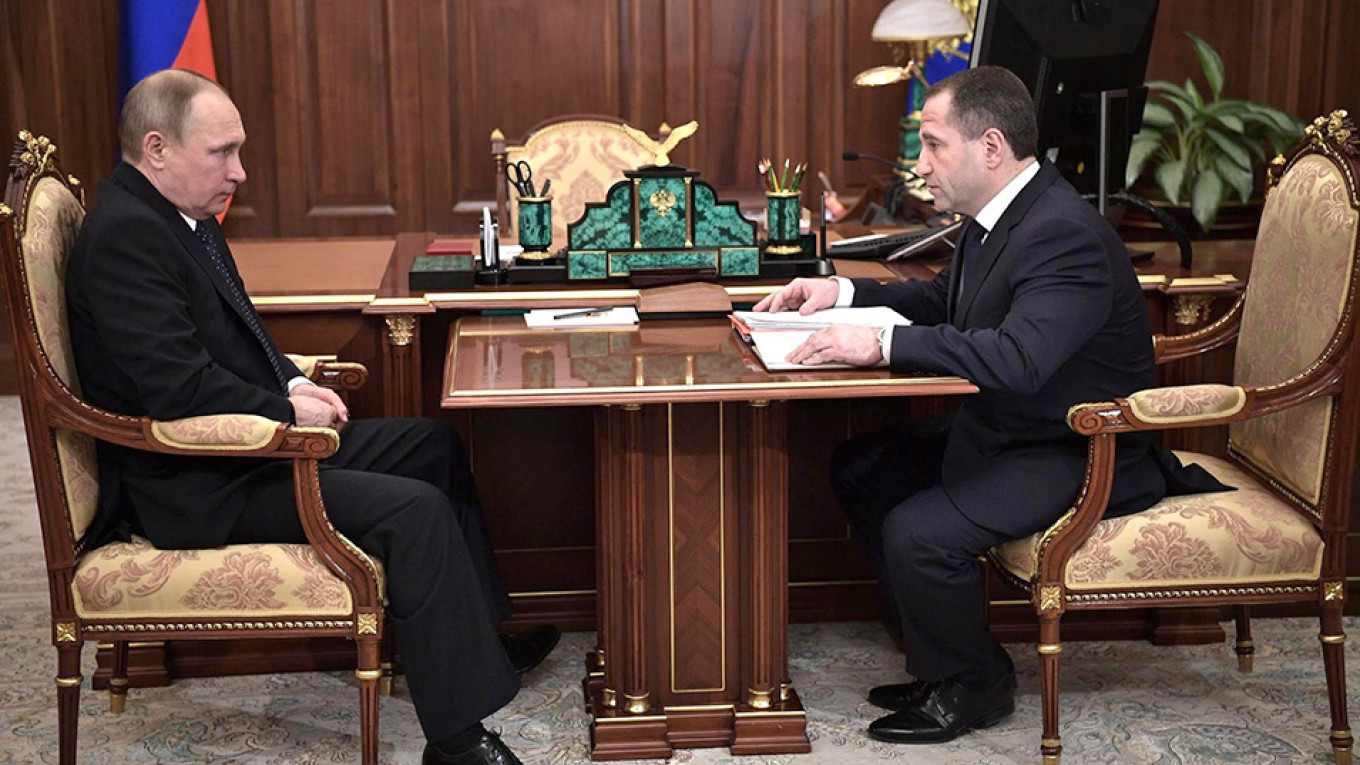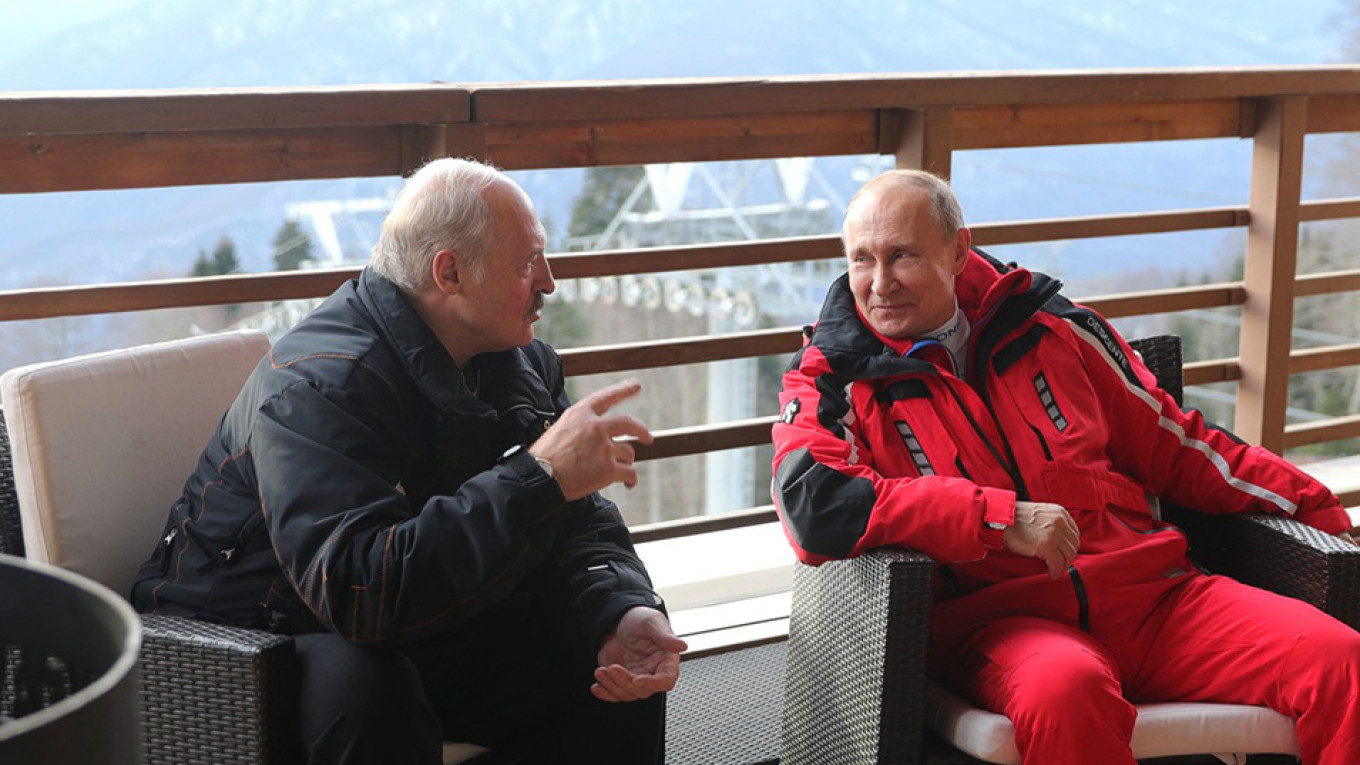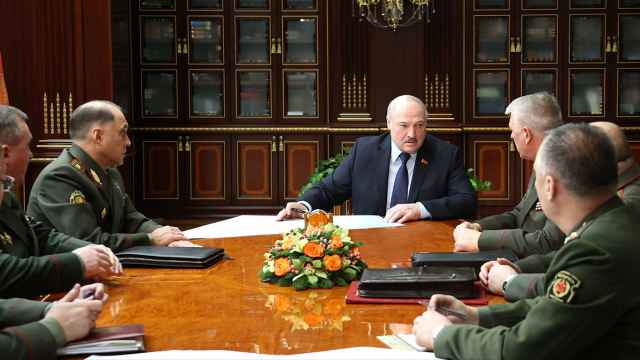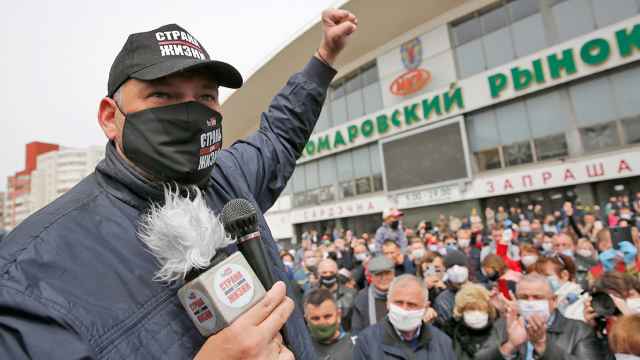On April 30, Vladimir Putin relieved Russian ambassador to Belarus Mikhail Babich of his duties and replaced him with Dmitry Mezentsev, a former senator and secretary general of the Shanghai Cooperation Organization (SCO).
Sacking the Russian ambassador to Belarus implies that Moscow has sacrificed a figure that has irritated Minsk in order to pursue closer integration of the two countries. However, one should not count on such a prompt development, for Belarussian President Alexander Lukashenko has considerable experience in resisting attempts to force him into something that he considers unprofitable.
Grigory Karasin, Russia’s deputy minister of Foreign Affairs, explained this rotation of office as an ordinary diplomatic practice, dismissing the idea that it reflected strained relations between Moscow and Minsk.
Babich, the former head of government in postwar Chechnya and onetime presidential envoy, was appointed in Minsk in August 2018, when Moscow was promoting the need to tighten the two countries’ integration.

However, he did not behave like a skillful diplomat, acting in a style reminiscent of a Soviet diplomat – when ambassadors in the satellite states of the socialist bloc patronized their hosts and interfered in domestic affairs.
Babich frequently violated diplomatic protocols, sharply commented on the actions taken by Minsk and Lukashenko himself, and provoked the Belarus authorities by meeting with representatives of the opposition and traveling through the country.
Less than one year after his appointment in Minsk, Babich managed to make an enemy of the country’s elite and of Lukashenko himself. He became one of the root sources of deteriorating relations between the two countries, as the Belarussian Foreign Affairs minister himself stated.
Belarus could only perceive Babich’s actions as a manifestation of the Kremlin’s policy aimed at limiting Belarus’ independence.
However, Minsk hasn’t been irritated by Babich’s actions alone. The country was also displeased when Russia introduced a new oil tax, which impacted the Belarussian budget, as well as by the recent Russian oil quality scandal. The constant chatter surrounding a scenario which allows Putin to stay in power after 2024 as head of a unified Russian-Belarussian state also increased Minsk’s anxiety; Babich’s behavior has only exacerbated such concerns.
As Kommersant reported, during a recent meeting with Putin, Lukashenko demanded Babich’s resignation in exchange for an increase in integration.
But a single resignation can hardly solve this issue.
Although the newly appointed ambassador does not have the reputation of being a liability, his ability to force further integration is uncertain.
For now, Minsk is open to strengthening its cooperation with Moscow and is willing to create a global economic, military and political union in which both countries would be equal, but Belarus is not ready to give up on its sovereignty.
Lukashenko, in turn, will use the fears surrounding a potential takeover in the upcoming parliamentary and presidential elections to his own advantage.
A version of this article was originally published in Vedomosti
A Message from The Moscow Times:
Dear readers,
We are facing unprecedented challenges. Russia's Prosecutor General's Office has designated The Moscow Times as an "undesirable" organization, criminalizing our work and putting our staff at risk of prosecution. This follows our earlier unjust labeling as a "foreign agent."
These actions are direct attempts to silence independent journalism in Russia. The authorities claim our work "discredits the decisions of the Russian leadership." We see things differently: we strive to provide accurate, unbiased reporting on Russia.
We, the journalists of The Moscow Times, refuse to be silenced. But to continue our work, we need your help.
Your support, no matter how small, makes a world of difference. If you can, please support us monthly starting from just $2. It's quick to set up, and every contribution makes a significant impact.
By supporting The Moscow Times, you're defending open, independent journalism in the face of repression. Thank you for standing with us.
Remind me later.







